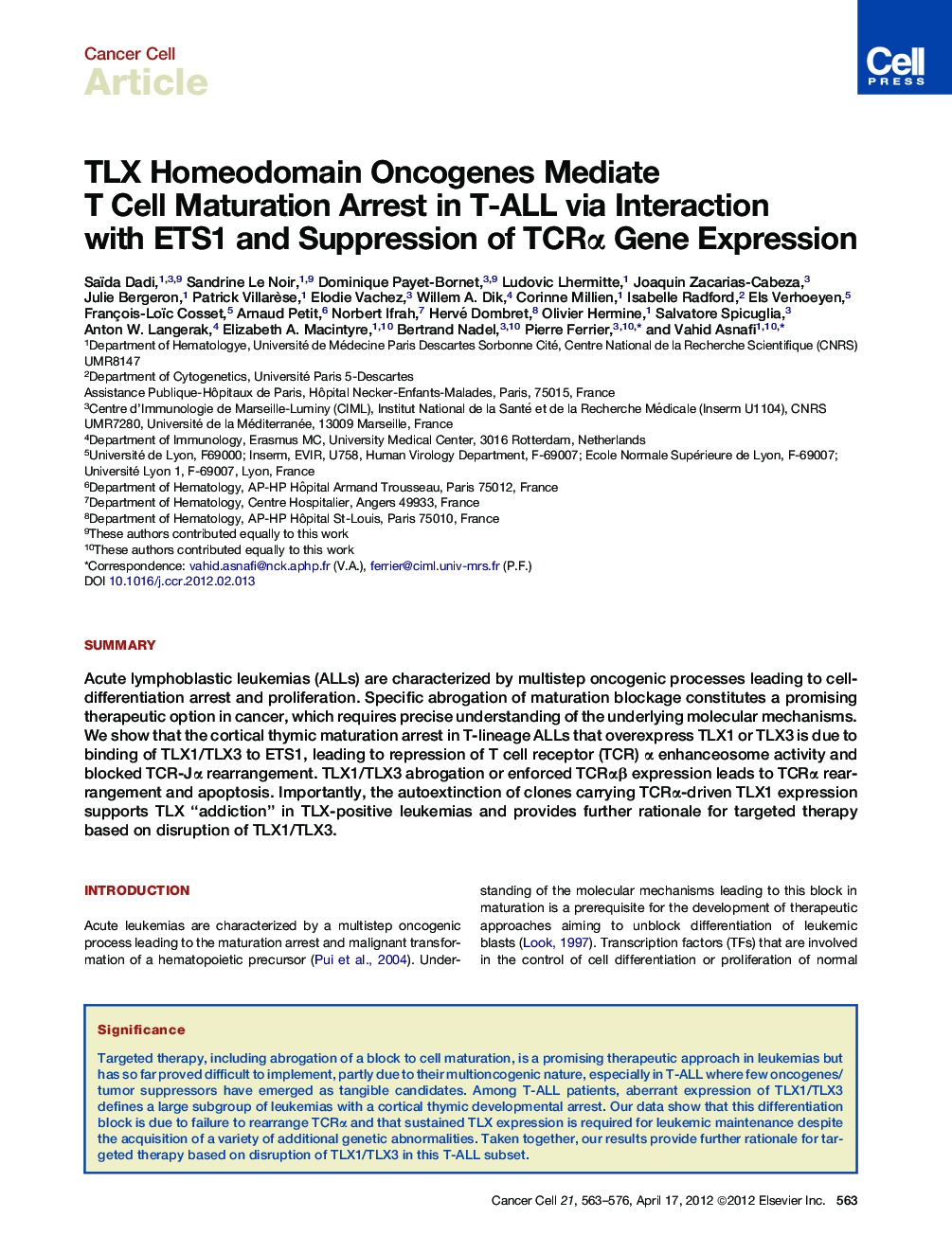| Article ID | Journal | Published Year | Pages | File Type |
|---|---|---|---|---|
| 2107132 | Cancer Cell | 2012 | 14 Pages |
SummaryAcute lymphoblastic leukemias (ALLs) are characterized by multistep oncogenic processes leading to cell-differentiation arrest and proliferation. Specific abrogation of maturation blockage constitutes a promising therapeutic option in cancer, which requires precise understanding of the underlying molecular mechanisms. We show that the cortical thymic maturation arrest in T-lineage ALLs that overexpress TLX1 or TLX3 is due to binding of TLX1/TLX3 to ETS1, leading to repression of T cell receptor (TCR) α enhanceosome activity and blocked TCR-Jα rearrangement. TLX1/TLX3 abrogation or enforced TCRαβ expression leads to TCRα rearrangement and apoptosis. Importantly, the autoextinction of clones carrying TCRα-driven TLX1 expression supports TLX “addiction” in TLX-positive leukemias and provides further rationale for targeted therapy based on disruption of TLX1/TLX3.
Graphical AbstractFigure optionsDownload full-size imageDownload high-quality image (175 K)Download as PowerPoint slideHighlights► TLX1 and TLX3 proteins interact with the ETS1 proto-oncogene in T-ALL ► TLX-ETS1 protein interaction blocks TCRα rearrangement via Enhancer-alpha repression ► TLX inactivation and TCRαβ expression induce redifferentiation and apoptosis ► Sustained TLX expression is required for leukemic transformation.
